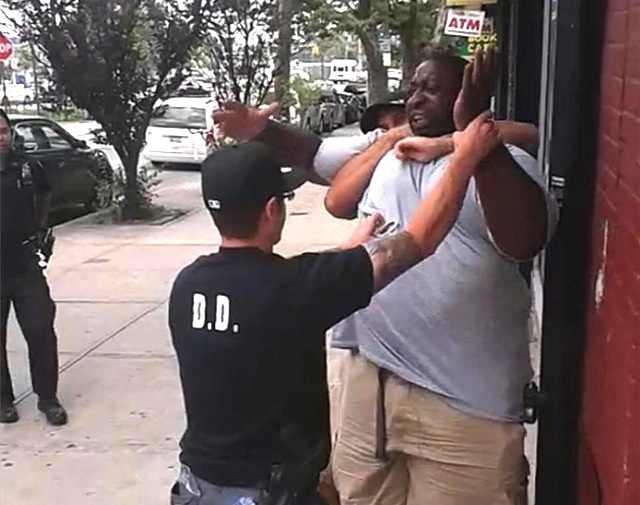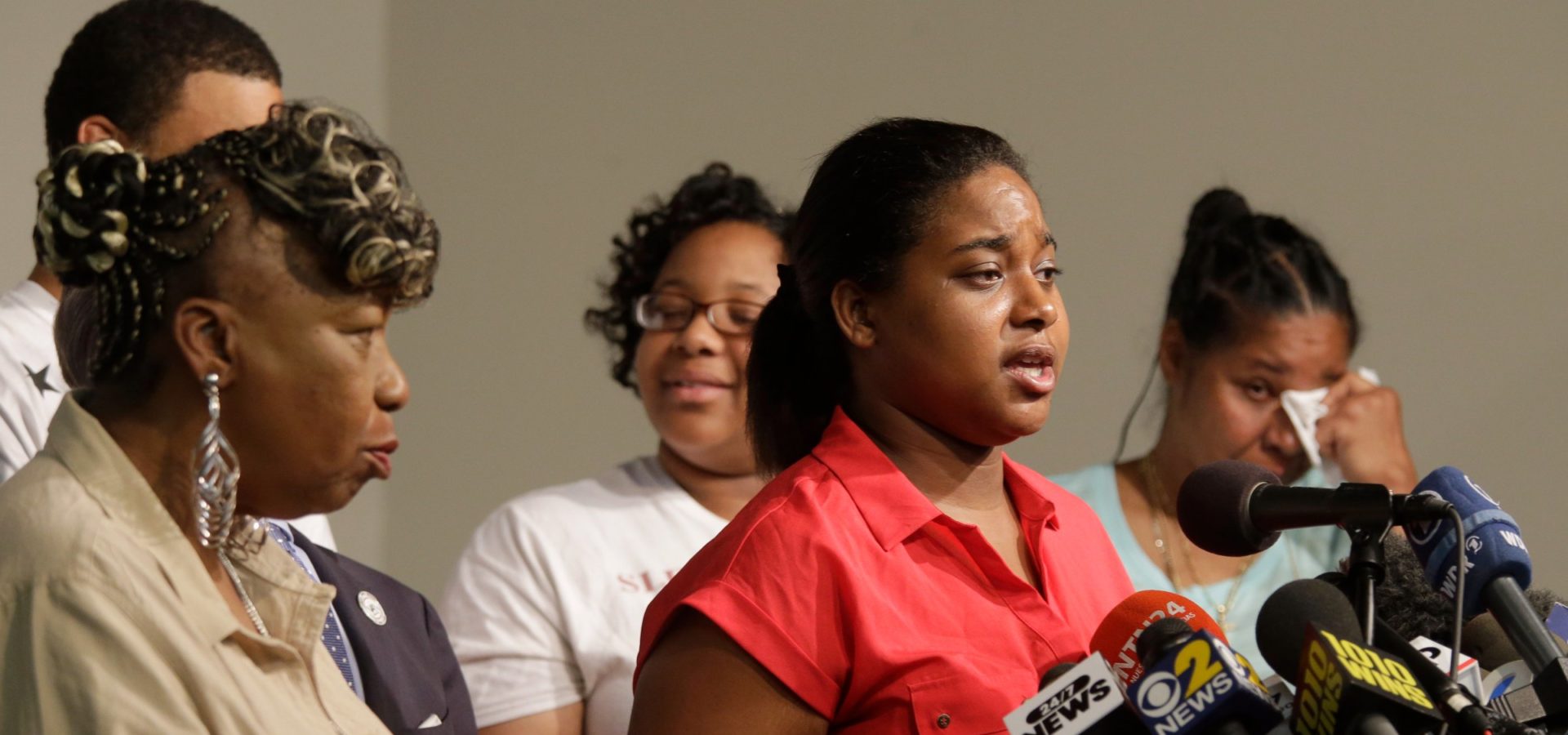NEW YORK – Erica Garner — the 27-year-old daughter of Eric Garner, whose July 2014 death by an NYPD chokehold was filmed and went viral — died Monday as the result of suffering a massive heart attack on Christmas Eve brought on by an episode of asthma.
Since the death of her father – whose killer was never indicted by a grand jury – Erica had been an outspoken national advocate for justice for all victims of police brutality. She even appeared in a television commercial for then-presidential hopeful Bernie Sanders.
Saturday’s heart attack was actually the second for Garner. In addition to suffering from asthma like her father, Erica gave birth to a boy this past August, Eric Garner III. Much has been written in 2017 about the crisis of black maternal mortality. Some observers feel that the combined pressures of being an activist, an asthmatic, and post-partum led inexorably to Garner’s heart attack and death.
The micro- and macro-aggressions that came from being the daughter of a police murder victim undoubtedly added to Erica’s stressors. Cause and effect are difficult to establish with precision, but what we do know is that, unfortunately, Erica Garner is not an anomaly. She shared her current life situation and its impact with some other well-known black women. These women, family members of black people caught in the criminal justice system, died while fighting for justice for their loved ones or shortly thereafter.
The ripple effect of police violence

Most recently Venida Browder, the mother of 22-year-old Kalief Browder, died in October of 2016. The younger Browder had made headlines as the face of all that was wrong with the criminal justice system, being falsely accused of theft and having to endure the horrors of Rikers Island at the age of 16. Unable to make bail and being held in solitary confinement for protection from both guards and other inmates, only to finally have the charges against him dropped, Browder committed suicide in June of 2015. Venida Browder discovered his body hanging outside the window of the home they shared.
Her family will tell you she died of a broken heart, suffering 11 heart attacks in a 24-hour period.
“What she really wanted … was an apology,” her daughter said. “As soon as my brother died she just broke apart. She deteriorated in every way after he passed – physically, mentally, emotionally and socially.”
Troy Davis’s mother Virginia Davis was also said to have died of a broken heart. Her son, convicted of the killing of a Savannah police officer in 1989, was the center of a worldwide movement calling on clemency and an end to the death penalty. Virginia died five months before Troy’s September 2011 execution, according to her daughters, due to the stress of the appeals hearings.
Troy’s older sister, Martina Correia, was amongst those who had campaigned tirelessly for her brother’s life. Correia continued to work to make the death penalty a relic of the past, carrying on that work as a 10-year survivor of breast cancer. Correia lost her bout with the disease in December of 2011, the outcome no doubt hastened by the execution of her brother two months prior.
Evelyn Rasco died in 2013, two years after her daughters Jamie and Gladys Scott came home after 17 years in a Mississippi prison. Rasco had led the lonely fight to free her daughters after they had been given life sentences stemming from a robbery that netted $11. Rasco, who had a leg amputated at one point, had taken her fight for her daughters out of state and into Florida, not only for them but for herself also. “I just wanted to leave,” Rasco said. “I was having a lot of personal problems. I didn’t feel safe there, and I wasn’t accomplishing anything there, as far as helping Jamie and Gladys in the state of Mississippi. I felt (that) if I went a little further, I could get help for them.”The trauma of police violence affects more than the men and women upon whom it is physically inflicted. The families of those men and women suffer also. We say and know this from an intellectual standpoint, but the palpable effects of it are only now being discussed from an actual health standpoint. The collateral damage done by police violence warrants closer examination, but it is all too clearly still another compelling reason that such systemic violence must be addressed and curbed.


